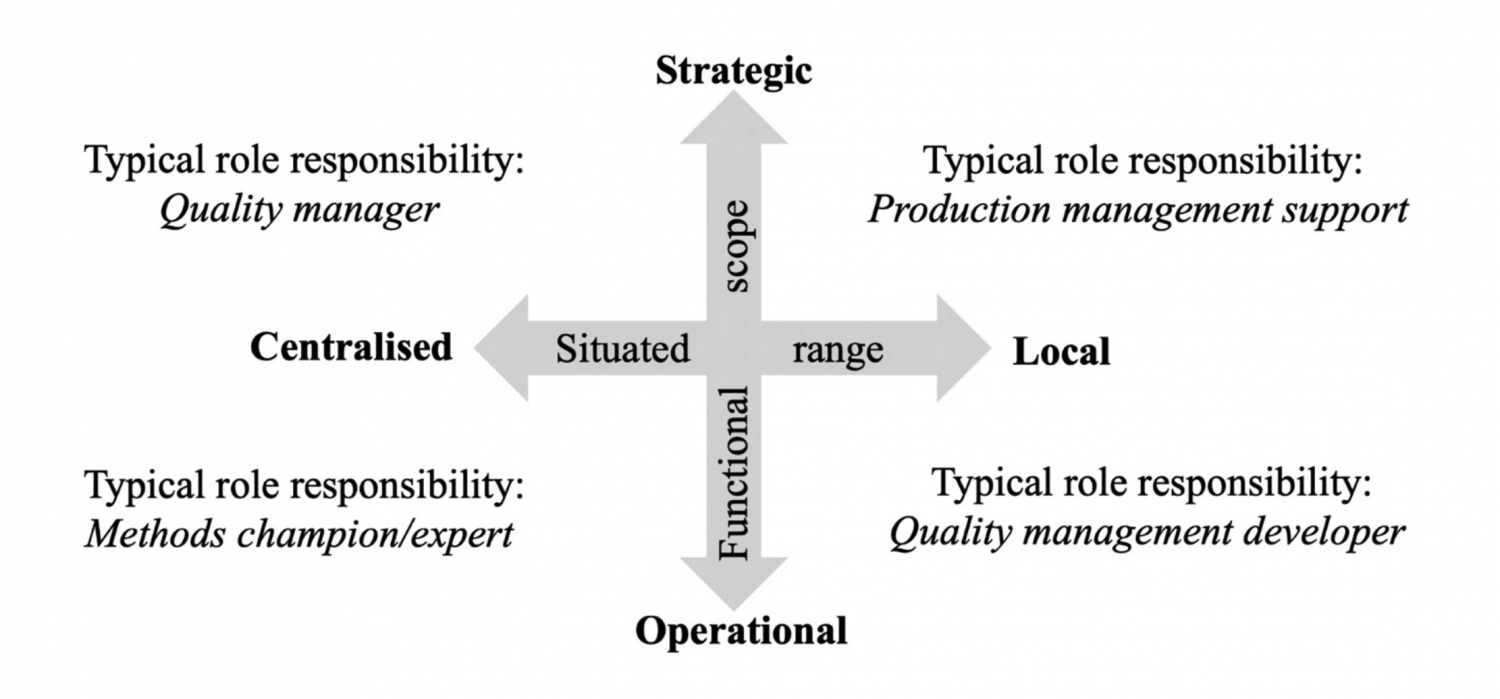Few empirical studies have focused on what quality management practitioners actually do, with even fewer studies focusing on what it actually takes to do quality management work, i.e. the competencies of quality management. The purpose of this paper is to introduce a competence-based terminology for describing general competencies of quality management work in organisations and to create a competence framework in order to understand what is needed to be a quality management practitioner.
Av Jason Martin, Linköpings universitet, Mattias Elg, Linköpings universitet, Ida Gremyr, Chalmers och Andreas Wallo, Linköpings universitet.
This paper is based on an embedded, qualitative multiple-case study design incorporating four Swedish large size organisations where designated quality management practitioners (n = 33) were selected and interviewed. A quality management competence framework incorporating four main quality management competence dimensions is presented: the human, the methods & process, the conceptual and the contextual competence dimensions. Four generic quality management role responsibilities are also posited: centralised & strategic, centralised & operational, local & strategic and local & operational role responsibilities. The competencies and role responsibilities are discussed in relation to the notion of emergent quality management and the emerging need of more integrative and business excellence-oriented quality management.
Introduction
What are the competencies needed to be a quality management practitioner? This fundamental question is rarely asked (nor answered) within quality management research. Given the current debate on the changing and emerging nature of quality management (e.g. Weckenmann, Akkasoglu, & Werner, 2015; Zhang, Linderman, & Schroeder, 2012), it should be a highly relevant question to ask for any organisation striving for business excellence (Fundin, Bergquist, Eriksson, & Gremyr, 2018). Within the field of quality management, this question should also strike somewhat of an existential note. Indeed, there are studies anticipating a possible ‘phasing out’ of quality management, perhaps dispersing its practices to other professions and professionals (e.g. Waddell & Mallen, 2001). The heart of the matter is that if it is not really known what quality management practitioners are, nor how to use them, why should an organisation be expected to employ quality management practitioners at all? This paper is an effort to demystify the role of the quality management practitioner and take a closer look on what it actually takes to be one.
Focusing on the competencies of quality management practitioners, this paper adheres to the notion of competence as the potential for performance in a given situation (|Ellström, 1992, 1997). The term quality management is conceptually established as practices, principles and techniques facilitating customer focus, continuous improvement and teamwork (Dean, Jr. & Bowen, 1994) and product quality (Sousa & Voss, 2002). The use of professional and/or profession in quality management research and reports is widespread (e.g. Antony, 2013; Fundin, 2018; Kolb & Hoover, 2012; Sörqvist, 2014).
However, using professional and profession entails certain theoretically grounded obligations, e.g. formal education, legitimacy, licencing and codes of ethics (e.g. Abbott, 1988; Evetts, 2003; McClelland, 1990), none of which can be said to be adequately prominent within the field of quality management. In this paper, the rather less ambitious occupational labels of practitioner and practice (Schatzki, 2001) are preferred. A practice is a defined set of rule-based actions, guided by specific and affectively agreed purposes, collectively understood and agreed upon within the practitioner community, thus establishing a social order (Schatzki, 2001). Quality management practitioners represent a social order of employees responsible for performing quality management practices.
